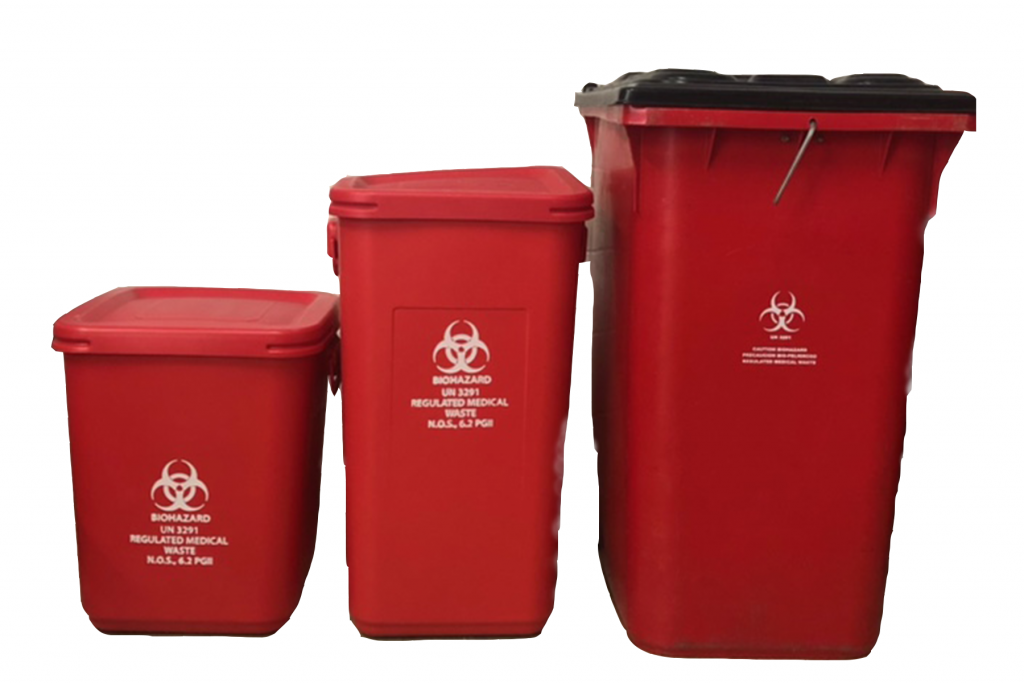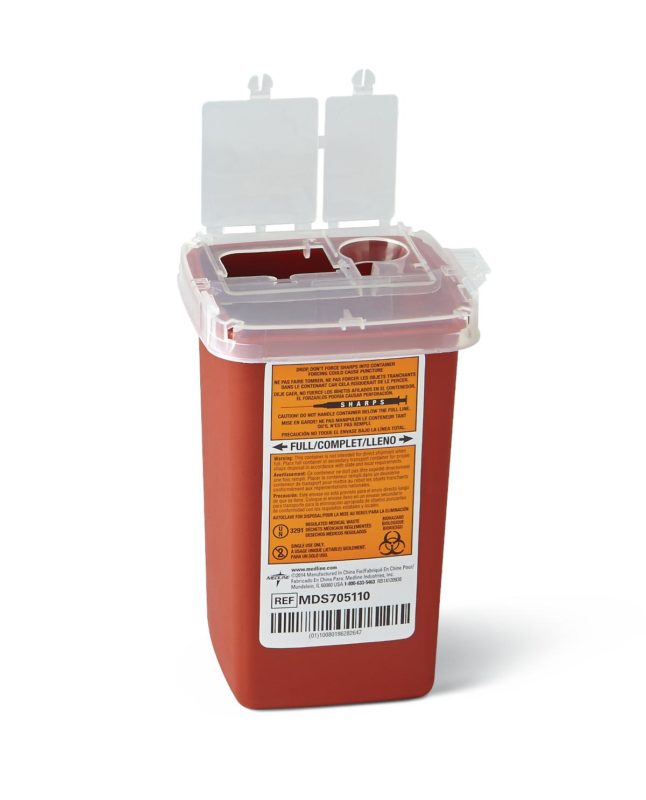Guardians of Sanitation: Citizen Medical Waste Removal Service for Your Peace of Mind
Guardians of Sanitation: Citizen Medical Waste Removal Service for Your Peace of Mind
Blog Article
Remain Ahead of Regulations: Expert Suggestions on Medical Waste Disposal
In a globe where the healthcare sector is constantly evolving, it is critical for clinical facilities to remain in advance of policies when it comes to the proper disposal of clinical waste. From understanding the various classifications of medical waste to applying the ideal collection and segregation approaches, this discussion will certainly supply important understandings and actionable pointers to assist facilities remain ahead of guidelines in the ever-changing landscape of medical waste disposal.
Recognizing Medical Waste Categories
Recognizing medical waste groups is vital for proper disposal and administration in medical care facilities. Clinical waste refers to any type of waste created by health care tasks that may present a threat to public wellness or the environment. It is vital to categorize medical waste properly to ensure its risk-free handling, disposal, treatment, and transportation.
There are numerous groups of medical waste that health care centers need to be familiar with. One of the most common classifications consist of infectious waste, pathological waste, sharps waste, pharmaceutical waste, and chemical waste. Each classification has particular guidelines and policies for its correct administration and disposal.
Transmittable waste consists of materials polluted with blood or other physical fluids, such as gloves, gowns, and lab societies. Pathological waste refers to human cells, body organs, or body parts that require special delivery and disposal. Sharps waste includes utilized needles, syringes, and other sharp objects that can trigger injury and send infections. Pharmaceutical waste comprises expired, unused, or contaminated medications that need cautious handling and disposal. Finally, chemical waste includes solvents, disinfectants, and other chemical compounds used in healthcare facilities.
Staying Up-To-Date With Regulatory Changes
Staying present with regulatory modifications is crucial for healthcare facilities to make sure compliance and proper management of medical garbage disposal. medical waste removal near me. With guidelines regularly developing, it is important for healthcare centers to stay up-to-date to stay clear of charges, fines, and possible damage to the environment and public wellness
To remain ahead of governing modifications, healthcare centers ought to develop a system for tracking and tracking updates. This can be done by registering for regulative newsletters, going to conferences and workshops, and actively joining sector associations. In addition, centers ought to mark an employee or team in charge of staying educated and distributing information to relevant stakeholders.
Routine communication with regulative agencies is additionally vital. Medical care facilities need to develop relationships with regional, state, and government agencies to guarantee they understand any type of adjustments in regulations that may influence their waste management methods. This can be done via normal meetings, involvement in public remark durations, and proactive interaction with governing agencies.
Moreover, health care centers ought to take into consideration partnering with waste administration companies that concentrate on medical garbage disposal (medical waste disposal services with WasteX). These companies are commonly fluent in the most recent policies and can supply advice and assistance to ensure compliance
Executing Appropriate Collection and Partition Methods
To efficiently handle clinical waste disposal, health care centers have to develop proper collection and segregation techniques in accordance with regulative standards. Implementing these methods makes sure the risk-free handling and disposal of potentially harmful materials, secures the setting, and lessens the danger of injuries and infections to medical care employees and the basic public.
Proper collection and partition techniques include making use of designated containers and classifying systems. Medical care centers need to supply plainly labeled containers for different kinds of clinical waste, such as sharps, contagious waste, pharmaceutical waste, and non-hazardous waste. These containers should be color-coded and plainly significant to avoid complication and advertise easy identification.
In addition, health care facilities need to educate their staff on the correct treatments for gathering and setting apart clinical waste. This includes enlightening them on the different sorts of waste, the ideal containers to utilize, and the importance of adhering to guidelines and regulations. Regular training sessions and refresher course training courses should be conducted to make certain that personnel continue to be current on finest methods.
Moreover, medical care centers must establish a system for normal collection and disposal of medical waste. This might include partnering with licensed waste administration firms that focus on clinical waste disposal. These firms will make certain that the collected waste is transferred and disposed of in compliance with governing requirements.
Picking the Right Disposal Methods

Incineration is among the most reliable and usual approaches for dealing with specific sorts of medical waste, such as pathological waste and sharps. It involves the controlled combustion of waste at high temperatures, reducing it to ash. However, incineration can launch harmful pollutants right into the air and add to air contamination.

Chemical therapy entails the usage of chemicals to sanitize and neutralize the waste. Microwave therapy makes use of microwave power to warmth and disinfect the waste.
Ensuring Conformity Through Documents and Training
After very carefully thinking about the appropriate disposal techniques for medical waste, medical care facilities must make certain conformity with laws and decrease ecological effect by carrying out efficient paperwork and training procedures. This action is crucial in keeping a sustainable and safe environment see this here for both medical care employees and the public.

Training is equally crucial in making certain compliance with policies. Health care employees that handle medical waste must obtain appropriate training on waste segregation, dealing with, i thought about this and disposal treatments. This training needs to cover subjects such as the correct use personal protective devices, recognition of various kinds of waste, and the correct disposal methods for each waste classification. By offering detailed training, medical care centers can encourage their team to make enlightened choices and decrease the threat of inappropriate garbage disposal.
Conclusion
To conclude, remaining in advance of laws in clinical garbage disposal is vital for health care facilities. medical waste removal near me. Comprehending the different categories of medical waste, remaining upgraded with regulative changes, applying correct collection and segregation methods, picking the ideal disposal techniques, and making sure compliance through documents and training are all necessary actions. By following these standards, medical care organizations can efficiently get rid of and manage of clinical waste in a liable and risk-free manner
From comprehending the different groups of medical waste to applying the ideal collection and segregation approaches, this discussion will certainly offer actionable pointers and useful insights to aid facilities remain ahead of guidelines in the ever-changing landscape of medical waste disposal. - medical waste disposal services with WasteX
The most usual categories consist of transmittable waste, pathological waste, sharps waste, pharmaceutical waste, and chemical waste. Healthcare facilities ought to offer clearly identified containers for different kinds of clinical waste, such as sharps, contagious waste, pharmaceutical waste, and non-hazardous waste. Medical care centers need to develop a thorough system to videotape and track all aspects of clinical waste disposal, consisting of kinds of waste created, amounts, and disposal techniques utilized. Health care workers who deal with medical waste should receive appropriate training on waste partition, taking care of, and disposal treatments.
Report this page